- Home
- Vladimir Nabokov
The Stories of Vladimir Nabokov
The Stories of Vladimir Nabokov Read online
ACCLAIM FOR
The Stories of
VLADIMIR NABOKOV
“[This collection] brings the reader closer to his magic.… Those who know Nabokov the novelist and have forgotten that Nabokov the story writer exists now have a precious gift in their hands.”
—Los Angeles Times Book Review
“His English is an extraordinary instrument, at once infinitely delicate and muscularly robust: no other writer of our time, not even Joyce, can catch the shifting play of the world’s light and shade as he does.”
—Boston Globe
“These stories are wonders of the English language.”
—San Francisco Chronicle
“It startles, then it provokes, and finally it satisfies in a way that a more domesticated fiction cannot.… An enduring tribute to Nabokov’s ability to charm … and inspire.”
—Atlanta Journal-Constitution
“They offer a startling, cloudless view of a writer’s development.… The effect of such felicities en masse is not only addictive; they point to the finesse of Nabokov’s ear [and] to the extreme and unembarrassable weirdness of his invention, the plain flights of his fancy.”
—The New Yorker
“Glorious.… Should please Nabokov’s devoted admirers and new readers, too.… Early story or late, the tales all read as rich as smoky dark chocolates.”
—Denver Post
“Wonderful.… This rich and satisfying book shows how much is lacking in the pale and tremulous fiction of the ’90s.”
—Cleveland Plain Dealer
“A major literary event.… These works display the same high level of sensibility, acute perception, sharp wit and stylistic legerdemain that is the recognized signature of Nabokov the novelist.”
—Kansas City Star
“They steam with fresh memories and tussle and toy with fate’s wicked irony.… Redemption shimmers in Nabokov’s darkly turbulent work.”
—Newsday
“Demonstrates his dazzling powers of description, his tender evocation of the past, and his ability to focus on odd angles of consciousness.”
—Christian Science Monitor
“It leaves you open-mouthed.”
—Newsweek
“These stories would delight anyone for whom humanity and its ideas and foibles are truly important.”
—Richmond Times-Dispatch
“This is genius.… Generously sculpted sentences plunge but never stumble toward the invariably original image, letting language push logic as far as it can go without calling attention to itself.”
—Fort Worth Morning Star-Telegram
“No writer has expressed more vividly, or explored with greater variety and power, the psychic imperative to give shape and meaning to one’s experience and thereby understand and endure it.”
—Washington Times
The Stories of
VLADIMIR NABOKOV
Vladimir Nabokov was born in St. Petersburg on April 23, 1899. His family fled to Germany in 1919, during the Bolshevik Revolution. Nabokov studied French and Russian literature at Trinity College, Cambridge, from 1919 to 1923, then lived in Berlin (1923–1937) and Paris (1937–1940), where he began writing, mainly in Russian, under the pseudonym Sirin. In 1940 he moved to the United States, where he pursued a brilliant literary career (as a poet, novelist, critic, and translator) while teaching literature at Wellesley, Stanford, Cornell, and Harvard. The monumental success of his novel Lolita (1955) enabled him to give up teaching and devote himself fully to his writing. In 1961 he moved to Montreux, Switzerland, where he died in 1977. Recognized as one of this century’s master prose stylists in both Russian and English, he translated a number of his original English works—including Lolita—into Russian, and collaborated on English translations of his original Russian works.
BOOKS BY VLADIMIR NABOKOV
NOVELS
Mary
King, Queen, Knave
The Defense
The Eye
Glory
Laughter in the Dark
Despair
Invitation to a Beheading
The Gift
The Real Life of Sebastian Knight
Bend Sinister
Lolita
Pnin
Pale Fire
Ada, or Ardor: A Family Chronicle
Transparent Things
Look at the Harlequins!
SHORT FICTION
Nabokov’s Dozen
A Russian Beauty and Other Stories
Tyrants Destroyed and Other Stories
Details of a Sunset and Other Stories
The Enchanter
The Stories of Vladimir Nabokov
DRAMA
The Waltz Invention
Lolita: A Screenplay
The Man from the USSR and Other Plays
AUTOBIOGRAPHY AND INTERVIEWS
Speak, Memory: An Autobiography Revisited
Strong Opinions
BIOGRAPHY AND CRITICISM
Nikolai Gogol
Lectures on Literature
Lectures on Russian Literature
Lectures on Don Quixote
TRANSLATIONS
Three Russian Poets:
Translations of Pushkin, Lermontov, and Tyutchev
A Hero of Our Time (Mikhail Lermontov)
The Song of Igor’s Campaign (Anon.)
Eugene Onegin (Alexander Pushkin)
LETTERS
Dear Bunny, Dear Volodya:
The Nabokov–Wilson Letters, 1940–1971
Vladimir Nabokov: Selected Letters, 1940–1977
MISCELLANEOUS
Poems and Problems
The Annotated Lolita
FIRST VINTAGE INTERNATIONAL EDITION, JANUARY 1997
Copyright © 1995, 2002, 2006 by Dmitri Nabokov
All rights reserved under International and Pan-American Copyright Conventions. Published in the United States by Vintage Books, a division of Random House, Inc., New York, and simultaneously in Canada by Random House of Canada Limited, Toronto. Originally published in the United States in hardcover by Alfred A. Knopf, a division of Random House, Inc., New York, in 1995, in slightly different form.
The Library of Congress has cataloged
the Knopf edition as follows:
Nabokov, Vladimir Vladimirovich, 1899–1977.
[Short stories]
The stories of Vladimir Nabokov.—1st American ed.
p. cm.
eISBN: 978-0-307-78809-2
1. Manners and customs—Fiction. 1. Title.
PS3527 .A15A6 1995
813′.54—dc20 95-23466
www.vintagebooks.com
Cover design by Barbara de Wilde
Cover photograph by Alison Gootee
v3.1
To Véra
Contents
Cover
About the Author
Other Books by This Author
Title Page
Copyright
Dedication
Preface
THE WOOD-SPRITE
RUSSIAN SPOKEN HERE
SOUNDS
WINGSTROKE
GODS
A MATTER OF CHANCE
THE SEAPORT
REVENGE
BENEFICENCE
DETAILS OF A SUNSET
THE THUNDERSTORM
LA VENEZIANA
BACHMANN
THE DRAGON
CHRISTMAS
A LETTER THAT NEVER REACHED RUSSIA
THE FIGHT
THE RETURN OF CHORB
A GUIDE TO BERLIN
A NURSERY TALE
TERROR
RAZOR
THE PASSENGER
AN AFFAIR OF HONOR
THE CHRISTMAS STORY
THE POTATO ELF
THE AURELIAN
A DASHING FELLOW
A BAD DAY
THE VISIT TO THE MUSEUM
A BUSY MAN
TERRA INCOGNITA
THE REUNION
LIPS TO LIPS
ORACHE
MUSIC
PERFECTION
THE ADMIRALTY SPIRE
THE LEONARDO
IN MEMORY OF L. I. SHIGAEV
THE CIRCLE
A RUSSIAN BEAUTY
BREAKING THE NEWS
TORPID SMOKE
RECRUITING
A SLICE OF LIFE
SPRING IN FIALTA
CLOUD, CASTLE, LAKE
TYRANTS DESTROYED
LIK
MADEMOISELLE O
VASILIY SHISHKOV
ULTIMA THULE
SOLUS REX
THE ASSISTANT PRODUCER
“THAT IN ALEPPO ONCE …”
A FORGOTTEN POET
TIME AND EBB
CONVERSATION PIECE, 1945
SIGNS AND SYMBOLS
FIRST LOVE
SCENES FROM THE LIFE OF A DOUBLE MONSTER
THE VANE SISTERS
LANCE
EASTER RAIN
THE WORD
Notes
Appendix
Books by Vladimir Nabokov
Preface
HAVING APPEARED individually in periodicals and in various assortments in previous volumes, fifty-two of Vladimir Nabokov’s stories were eventually published, during his lifetime, in four definitive English collections: Nabokov’s Dozen and three other thirteen-story “dozens”—A Russian Beauty and Other Stories, Tyrants Destroyed and Other Stories, and Details of a Sunset and Other Stories.
Nabokov had long expressed the intention of issuing a final batch, but was not sure whether there were enough stories that met his standard to make up a fifth Nabokovian—or numerical—dozen. His creative life was too full, and was truncated too suddenly, for him to make a final selection. He had penciled a brief list of stories he considered worthy of publication and labeled it “bottom of the barrel.” He was referring, he explained to me, not to their quality, but to the fact that, among the materials available for consultation at the moment, they were the final ones worthy of publication. Nonetheless, after our archive had been organized and thoroughly checked, Véra Nabokov and I came up with a happy total of thirteen, all of which, in our circumspect estimation, Nabokov might have deemed suitable. Hence Nabokov’s “bottom of the barrel” list, reproduced following this preface, should be considered partial and preliminary; it contains only eight of the thirteen newly collected stories, and also includes The Enchanter, which does not appear in the present collection but has been published in English as a separate short novel (New York, Putnam’s, 1986; New York, Vintage International, 1991). Nor do the author’s working titles correspond in every case to those decided upon for this volume.
From the list entitled “Stories written in English,” also reproduced following the preface, Nabokov omitted “First Love” (first published in The New Yorker as “Colette”), either through an oversight or because of its transformation into a chapter of Speak, Memory (original title: Conclusive Evidence). Some alignment instructions—albeit in Russian—in the upper left-hand corner suggest that this list was a fair copy prepared for typing. The two facsimile lists contain a few inaccuracies. “The Vane Sisters,” for example, was written in 1951.
The four “definitive” volumes mentioned above had been painstakingly assorted and orchestrated by Nabokov using various criteria—theme, period, atmosphere, uniformity, variety. It is appropriate that each of them conserve its “book” identity for future publication as well. The thirteen stories published in France and Italy as, respectively, La Vénitienne and La veneziana have also perhaps earned the right to appear as a separate English-language volume. These thirteen have made other individual and collective debuts in Europe, and the four previous dozens have appeared worldwide, sometimes in different constellations such as the recent Russkaya Dyuzhena (Russian Dozen) in Israel. I shall not touch on publication in post-Perestroyka Russia, which, with few exceptions, has been mega-copy piracy in every sense until now, although improvements shimmer on the horizon.
The present comprehensive collection, while not intended to eclipse the previous groupings, is deliberately arranged in chronological sequence, or the best possible approximation thereof. To this end, the order used in previous volumes has occasionally been altered, and the newly collected pieces have been integrated where appropriate. Date of composition was the criterion of choice. When this was not available or not dependable, date of first publication or other mentions became the guide. Eleven of the newly incorporated thirteen have never before been translated into English. Five of them remained unpublished until the recent appearance of the “new” thirteen in several European languages. Further bibliographical essentials and certain other interesting details appear at the back of this volume.
One obvious bonus of the new arrangement is a convenient overview of Nabokov’s development as a writer of fiction. It is interesting, too, that the vectors are not always linear, and a strikingly mature short story may suddenly crop up amid the younger, simpler tales. While illuminating the evolution of the creative process, and affording exciting insights into the themes and methods to be used later—particularly in the novels—Vladimir Nabokov’s stories are nevertheless among his most immediately accessible work. Even when linked in some way to the larger fictions, they are self-contained. Even when they can be read on more than one level, they require few literary prerequisites. They offer the reader immediate gratification whether or not he has ventured into Nabokov’s larger and more complex writings or delved into his personal history.
My translations of the “new” thirteen are my responsibility alone. The translation of most of the previously published Russian stories was the fruit of a cloudless collaboration between father and son, but the father had authorial license to alter his own texts in their translated form as, on occasion, he deemed appropriate. It is conceivable he might have done so, here and there, with the newly translated stories as well. It goes without saying that, as lone translator, the only liberty I have taken was the correction of the obvious slip or typo, and of editorial blunders from the past. The worst of those was the omission of the entire, wonderful, final page of “The Assistant Producer” in all English-language editions, it seems, subsequent to the first. Incidentally, in the song that twice meanders through the story, the Don Cossack who heaves his bride into the Volga is Stenka Razin.
I confess that, during the long gestation of this collection, I have taken advantage of queries and comments from hawk-eyed translators and editors of recent and concurrent translations into other tongues, and of fine-toothed inspections by those who are publishing a few of the stories individually in English. No matter how intense and pedantic the checking, a flounder or several will slip through the net. Nevertheless, future editors and translators should be aware that the present volume reflects what, at the time of its publication, are the most accurate versions of the English texts and, especially with regard to the thirteen newly collected pieces, of the underlying Russian originals (which were at times very hard to decipher, contained possible or probable author’s or copyist’s slips necessitating sometimes difficult decisions, and on occasion had one or more variants).
To be fair, I would like to acknowledge, with gratitude, spontaneously submitted draft translations of two stories. One came from Charles Nicol, the other from Gene Barabtarlo. Both are appreciated, and both yielded trouvailles. However, in order to maintain an appropriately homogeneous style, I have stuck, by and large, to my own English locutions. I am indebted to Brian Boyd, Dieter Zimmer, and Michael Juliar for their invaluable bibliographical research. Above all, I am grateful to Véra Nabokov for her infinite wisdom, her
superlative judgment, and the willpower that compelled her, with failing eyesight and enfeebled hands, to jot a preliminary translation of several passages of “Gods” in her very last days.
It would take much more than a brief preface to trace themes, methods, and images as they weave and develop in these stories, or the echoes of Nabokov’s youth in Russia, his university years in England, the émigré period in Germany and France, and the America he was inventing, as he put it, after having invented Europe. To choose at random from the thirteen newly collected stories, “La Veneziana,” with its astonishing twist, echoes Nabokov’s love for painting (to which he intended, as a boy, to dedicate his life) against a backdrop that includes tennis, which he played and described with a special flair. The other twelve range from fable (“The Dragon”) and political intrigue (“Russian Spoken Here”) to a poetical, personal impressionism (“Sounds” and “Gods”).
Nabokov gives in his notes (which appear at the end of this volume) certain insights regarding the previously collected stories. Among the many things one might add is the eerie doubling of space-time (in “Terra Incognita” and “The Visit to the Museum”) that foreshadows the atmosphere of Ada, Pale Fire, and, to a degree, Transparent Things and Look at the Harlequins! Nabokov’s predilection for butterflies is a central theme of “The Aurelian” and flickers through many other stories. But what is stranger, music, for which he never professed a special love, often figures prominently in his writing (“Sounds,” “Bachmann,” “Music,” “The Assistant Producer”).
Particularly touching to me personally is the sublimation, in “Lance” (as my father told me), of what my parents experienced in my mountain-climbing days. But perhaps the deepest, most important theme, be it subject or undercurrent, is Nabokov’s contempt for cruelty—the cruelty of humans, the cruelty of fate—and here the instances are too numerous to name.
DMITRI NABOKOV
St. Petersburg, Russia, and Montreux, Switzerland
June 1995
A note from Georg Heepe, editorial director of Rowohlt Verlag, Hamburg, traces the discovery of “Easter Rain,” now appended to this edition. It reads in part:

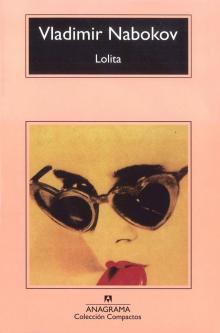 Lolita
Lolita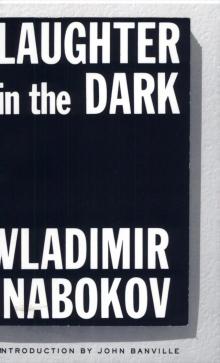 Laughter in the Dark
Laughter in the Dark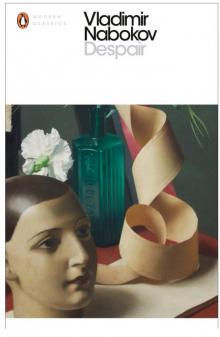 Despair
Despair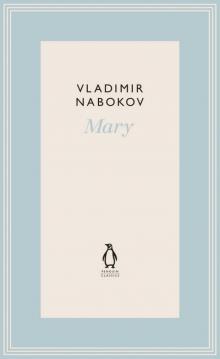 Mary
Mary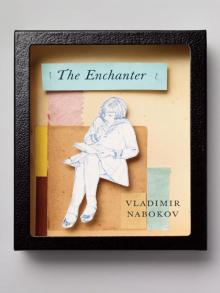 The Enchanter
The Enchanter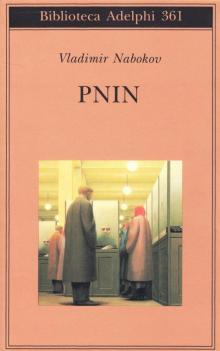 Pnin
Pnin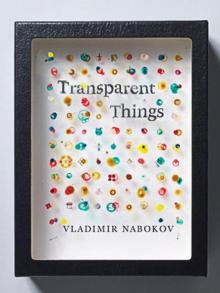 Transparent Things
Transparent Things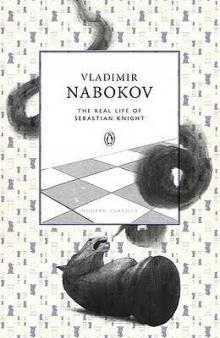 The Real Life of Sebastian Knight
The Real Life of Sebastian Knight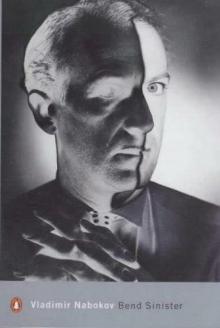 Bend Sinister
Bend Sinister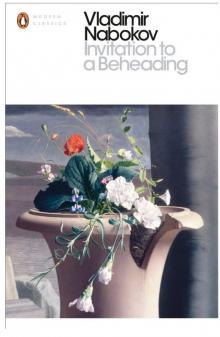 Invitation to a Beheading
Invitation to a Beheading The Stories of Vladimir Nabokov
The Stories of Vladimir Nabokov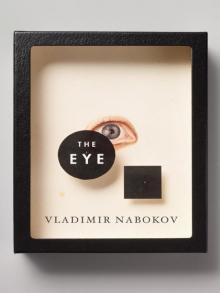 The Eye
The Eye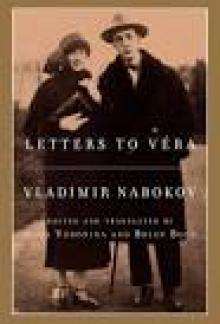 Letters to Véra
Letters to Véra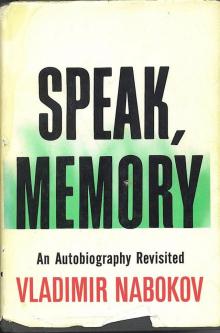 Speak, Memory
Speak, Memory The Gift
The Gift The Luzhin Defense
The Luzhin Defense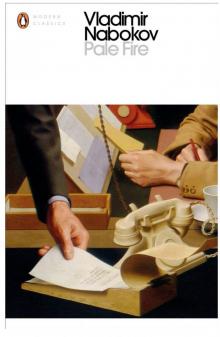 Pale Fire
Pale Fire Glory
Glory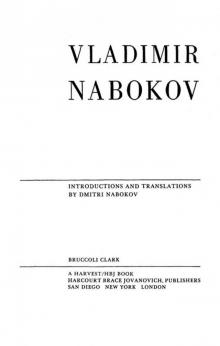 Man From the USSR & Other Plays
Man From the USSR & Other Plays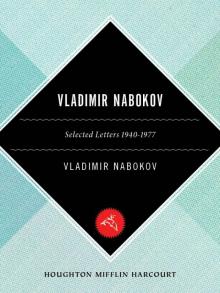 Vladimir Nabokov: Selected Letters 1940-1977
Vladimir Nabokov: Selected Letters 1940-1977 Strong opinions
Strong opinions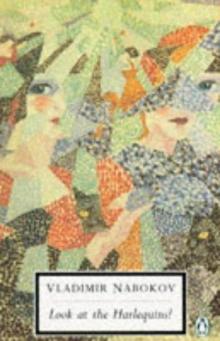 Look at the Harlequins!
Look at the Harlequins!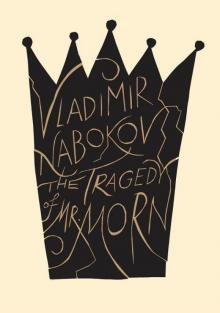 The Tragedy of Mister Morn
The Tragedy of Mister Morn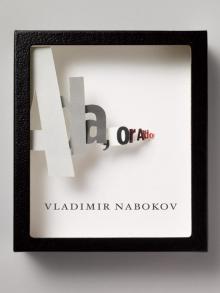 Ada, or Ardor
Ada, or Ardor Lectures on Russian literature
Lectures on Russian literature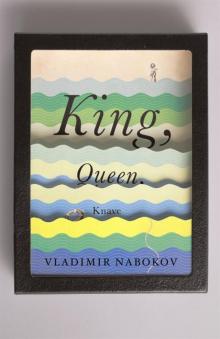 King, Queen, Knave
King, Queen, Knave The Original of Laura
The Original of Laura